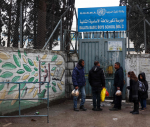You are here
Arab torch of unity ignitable when democracy rules Arab world
Aug 18,2018 - Last updated at Aug 21,2018
The term "Arab world" is for now at least a misnomer because there is no such a thing in real terms in this era of time. Ask any Arab person and they would hasten to tell you that the so-called Arab world is for now a figment of the imagination, and perhaps a gimmick detached from all realities. There are some twenty Arab countries which are completely independent from one another and jealously guarding their sovereignty against any encroachment, interference or control by any other Arab state, whether friendly or hostile. There is really not much, if any, that unites Arab countries these days, except language and common culture, no more no less than what binds Latin American countries. So why the exaggerated exaltation about the Arab nation when there is nothing of the sort on the ground. The answer could lie deep in the Arab political psyche that it does indeed exist.
Most wars waged by Arab states have been among themselves or within themselves. To cite but a few examples, the raging war in Yemen is a glaring example of the absence of Arab nationalism or the Arab nation as such that unites the ranks of the Arab peoples, not now at least. The eight-year civil war in Syria is another example on how Arabs are good at cutting each other's throats rather than forging a common destiny. The simmering conflicts in the Arab Gulf region, once thought to be immune from inter-Arab rivalry, offers yet another example of the dying Arab sense of nationalism. The inner conflicts in Iraq, Libya, Sudan and Lebanon are additional unfortunate examples of inter-Arab rivalry. So why all existing pretension that there is an Arab world united in purpose and goals when there is none. Again, because of the unquenching conviction that it does exist!
The challenge is exasperated by the fact that most countries take this Arab world notion seriously and tend to lump all the Arab states together in one basket, as if they are one monolithic Arab world. Besides all the realities on the ground, many Arab states are composed of several major ethnic and religious groups, which could be lurking in the background waiting for the right moment to claim their own identity. The Kurdish people in Iraq is a prime example. In fact, the Iraqi constitution stipulates that Iraq is an Arab and Kurdish state and not just an Arab state. What is so common between Sudan and Lebanon, Algeria with Qatar or Libya with Syria or Iraq for that matter. There are hardly many common denominators between them these days to make them parties to one bloc of states with shared perspectives or objectives on fundamental policy issues on the domestic or foreign levels. Take for example the Palestinian conflict, there is hardly any Arab country, other than Jordan, that raises the issue in regional and international fora. The same goes for the Syrian, Iraqi, Yemeni, Qatari and Libyan situations.
Yet, this could be only one side of the equation. There was once a time when Arab nationalism was an all pervasive phenomenon that swept through the Arab peoples everywhere like wild fire. Yes, there was a time when Arabs in North Africa would take to the streets in their respective countries whenever there was an attack on any part of the Arab Middle East. The same happened in the Middle East when the Algerian revolution for freedom and independence was at its high pitch. One can go on and on citing examples of Arab solidarity and unity of ranks throughout the past era. What stands out most though was the Great Arab Revolt led by the late Sharif Hussein at the turn of the 20th century. The revolt aimed to unify parts of the Middle East Arab homeland until the British and French colonial conspiracy at the end of WWI, called the Sykes-Picot agreement, came to divide the Middle East into permanent separate Arab states.
Yet, that was true in the "old days". Nowadays, the fire of Arab nationalism is all but extinguished. The Arab torch for unity could, however, easily ignite once again under certain conditions. This could happen when democracy is once again the order of the day in the vast Arab world and the Arab peoples decide their destiny. This recovery may take time and can be realised only gradually at a one step at time. I do not believe this could happen perhaps in my lifetime, but surely in the distant future. The yearning for an Arab nation lingers deep in the Arab psyche and this deep rooted aspiration cannot be until it is realised when the Arab peoples take their destiny into their own hands.













